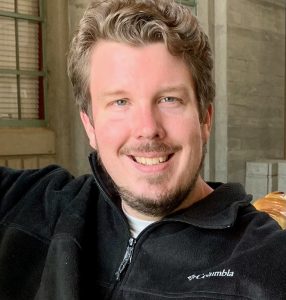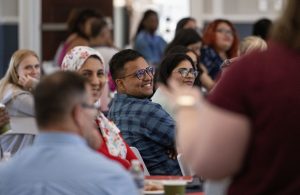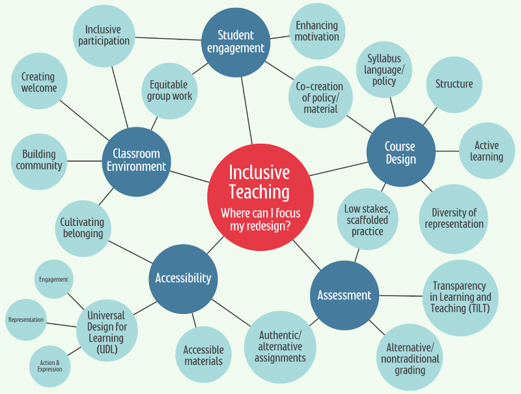 CETL’s fearless director Josh Eyler shared the news last week that his talk has been selected for the SXSW EDU Conference in Austin, Texas, in March 2024. SXSW (“South by Southwest”) EDU is part of the SXSW family of conferences, and it hosts thousands of stakeholders from all parts of education for a series of talks and workshops aimed at innovation and positive change in education. Josh’s talk, “Scarlet Letters: Fixing the Problem of Grades,” is based on his forthcoming book from Johns Hopkins University Press. Here’s his abstract:
CETL’s fearless director Josh Eyler shared the news last week that his talk has been selected for the SXSW EDU Conference in Austin, Texas, in March 2024. SXSW (“South by Southwest”) EDU is part of the SXSW family of conferences, and it hosts thousands of stakeholders from all parts of education for a series of talks and workshops aimed at innovation and positive change in education. Josh’s talk, “Scarlet Letters: Fixing the Problem of Grades,” is based on his forthcoming book from Johns Hopkins University Press. Here’s his abstract:
Getting a good grade is supposed to be a sign of excellence, but research shows that grades often have very negative consequences. Grades interfere with motivation and perpetuate the idea that school is a place for competition rather than discovery. Even worse, grades are affecting our children’s wellbeing. Specifically, the stress, anxiety, and pressure felt by students about grades are directly linked to the widely reported mental health crisis among children, teens, and young adults. In this session, we will zero in on the problem of grades and discuss ways that we might yet fix it.
We are super excited for Josh and this giant platform for his work on grades and grading!
 Hanna Lee is CETL’s operations coordinator. Hanna is also a librarian, having worked in libraries and educational institutions from Mississippi to Maryland to Mozambique. Hanna shared with the CETL team recently that with her librarian hat on, she is chairing the 2025 award selection committee for the Caldecott Medal. Yes, that Caldecott Medal! You’ve probably seen the gold Caldecott seal on a picture book or two. The Caldecott Medal is given by the American Library Association to the artist of the most distinguished American picture book for children. Hanna will soon have stacks of picture books in her office as she and the committee review books published in 2024 for the 2025 award. Congrats to Hanna for this distinctive service to her field!
Hanna Lee is CETL’s operations coordinator. Hanna is also a librarian, having worked in libraries and educational institutions from Mississippi to Maryland to Mozambique. Hanna shared with the CETL team recently that with her librarian hat on, she is chairing the 2025 award selection committee for the Caldecott Medal. Yes, that Caldecott Medal! You’ve probably seen the gold Caldecott seal on a picture book or two. The Caldecott Medal is given by the American Library Association to the artist of the most distinguished American picture book for children. Hanna will soon have stacks of picture books in her office as she and the committee review books published in 2024 for the 2025 award. Congrats to Hanna for this distinctive service to her field!
 Earlier this month, Marc Watkins, academic innovation fellow with AIG and lecturer in writing and rhetoric, was interviewed on the fantastic Tea for Teaching podcast. Marc appears on Episode 311, “Upskilling in AI,” where he talks about the importance of higher education faculty learning about generative AI and its intersections with teaching and learning. Marc also discusses the rapidly changing landscape of generative AI, which includes far more than just ChatGPT. You can listen to Marc’s interview here, or search “Tea for Teaching” in your podcast app. And for more from Marc, please note that he’s speaking at an AIG workshop, “Beyond ChatGPT: New Tools to Augment Your Research,” on November 8th at 11am on Zoom. See our events page for details and registration.
Earlier this month, Marc Watkins, academic innovation fellow with AIG and lecturer in writing and rhetoric, was interviewed on the fantastic Tea for Teaching podcast. Marc appears on Episode 311, “Upskilling in AI,” where he talks about the importance of higher education faculty learning about generative AI and its intersections with teaching and learning. Marc also discusses the rapidly changing landscape of generative AI, which includes far more than just ChatGPT. You can listen to Marc’s interview here, or search “Tea for Teaching” in your podcast app. And for more from Marc, please note that he’s speaking at an AIG workshop, “Beyond ChatGPT: New Tools to Augment Your Research,” on November 8th at 11am on Zoom. See our events page for details and registration.
Closer to home, both Bob Cummings, executive director of academic innovation, and Derek Bruff, CETL visiting associate director, were interviewed by the Daily Mississippian about artificial intelligence. Bob was interviewed by student Anna Grace Likes for a piece called “UM’s AI task force adapts alongside constant technological advances,” while Derek was interviewed by student Jordan Isbell for “Professors reckon with artificial intelligence.” Marc Watkins is quoted in that article about the AI task force, too. CETL staff continue to be at the forefront of higher education’s response to generative AI.


